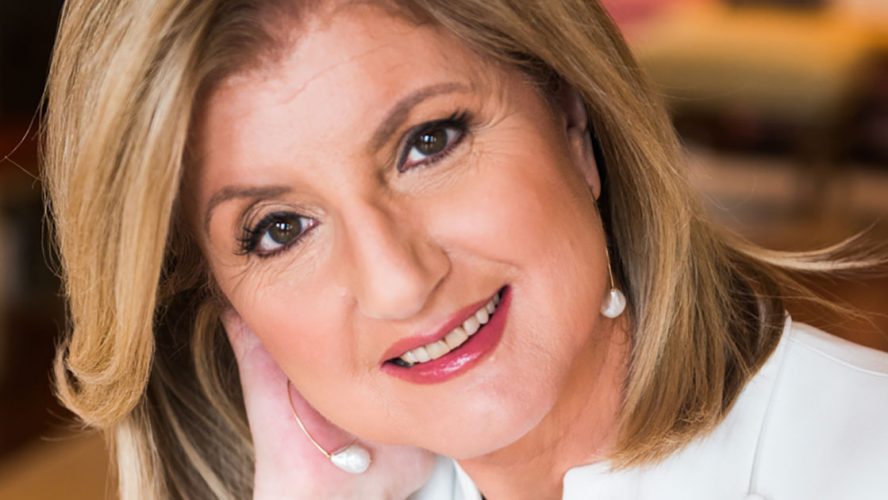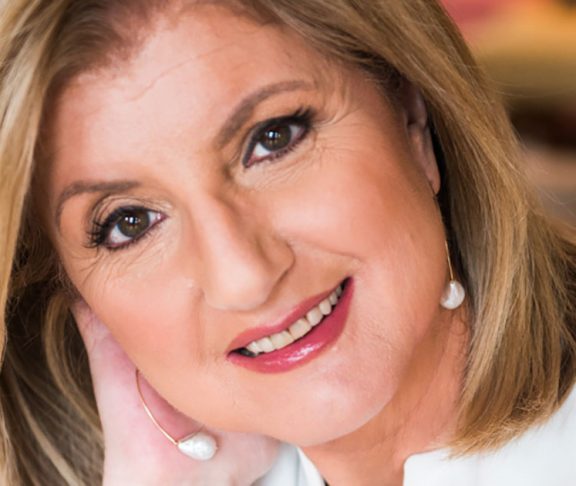Arianna Huffington has remained an outspoken advocate for employees, pushing employers to ensure the well-being within the office for more than a decade now. With the introduction of her latest contribution to the movement, the online resource Thrive Global, we touched base with Huffington to discuss how wellness is seeping into the corporate realm.
You have been demonstratively outspoken about the role you feel all employers should play in ensuring the well-being of their employees for over a decade now. Considering your massive sphere of influence on social media, as well as the immediate success of Thrive Global, it is obviously a viewpoint that resonates with quite a large number of people. Do you feel the growing buzz online is being translated over to real-world boardrooms at the same pace?
There’s certainly more awareness than there is action. That’s the “revolution” part of “The Sleep Revolution,” the incredible amount of science coming out showing the connection between well-being and productivity. And there’s more and more awareness of this science by the business world.
The biggest challenge is no longer convincing businesses or executives that greater well-being results in greater productivity and creativity. The challenge now is about changing the workplace culture to put these truths into action. And so that’s why Thrive Global was born — to move from awareness to action.
In our first conversation, back in 2015, you noted that throughout most of your life, you had been “subscribed to a very flawed definition of success, buying into our collective delusion of burnout as the necessary price we must pay for success.” In an ever-competitive, ever-demanding world where more and more people are finding themselves having to compete with artificial intelligence (AI), what advice can you offer to those struggling to break from that “delusion?”
I can offer them the truth, backed by science, that they’ll be more successful if they prioritize their well-being. I can also offer them my personal experience. That flawed definition of success you reference resulted in my collapsing from exhaustion and breaking my cheekbone in 2007. And this caused me to make a lot of changes to my life. So, I know which way of living and working works better; it’s definitely the well-being way.
And, yes, there are a lot of profound disruptions happening, AI included, but what that means is that the qualities that will be most valuable in the workplace are things like creativity, resilience, intuition, focus and the ability to learn — all things that are enhanced by well-being.
Thrive Global seems to be your vision of worldwide well-being personified, so it would be interesting to get a look under the hood. Can you share some details on how your progressive management strategies and unwavering dedication to creating a culture of wellness at The Huffington Post carried over to Thrive Global?
At the Huffington Post there were obvious challenges, since we were running a 24/7 newsroom. We did a lot to try to prevent burnout. First, we made it clear that no one was expected to check email or respond after hours or on the weekend — unless, of course, these were their working hours. And we also had two nap rooms installed.
But the key, which we’ve imported to Thrive Global, is to structure the incentives in the right way; to make it very clear that not getting sleep and staying at the office too late is not celebrated and rewarded. So at Thrive Global, we’re trying to be a sustainable startup. We have a nap room and a nap pod in the office, we bring in masseuses from Zeel regularly, which is very popular, and we encourage people to take time off and let others know when they’re feeling overwhelmed. If there are special occasions or emergencies when late-night or weekend work is required, we encourage people to come in late the next day or take an extra day off.
Through the Thrive Foundation, you have supported, partnered and worked with some incredibly influential nonprofit and civic leaders in recent months, training them how to more effectively enhance well-being and performance so that they help others how to enhance well-being and performance. Is there one person you’ve worked with that stands out as particularly inspiring?
As we plan our Thrive Foundation work, it’s been incredibly inspirational to see the response from mayors around the country. Minneapolis Mayor Betsy Hodges said, “I’m living proof that it is completely possible to be in a high-powered executive function and take care of yourself. I lend my voice to the chorus that says you will be more effective in your work and happier in your life if you take the risk of self-care.”
Oakland Mayor Libby Schaaf said: “It’s critical that we begin the practice of putting self-care, health and well-being at the top of Americans’ to-do lists.” Providence Mayor Jorge Elorza said: “Here in Providence, we are excited to get involved with Thrive Global and appreciate their focus on maintaining strong and sustainable work-life balance for our employees. I have seen firsthand the hard work that nonprofit and public sectors employees put into their work and I know that providing them with resources and trainings they need is critical to supporting their quality of life both at work and at home.”
Boston Mayor Marty Walsh said: “The City of Boston is focused on providing a healthy, balanced and sustainable quality of life for all its employees. I’m looking forward to working together with Thrive Global to provide their work-life balance training to all of our hard-working city employees throughout Boston.”

